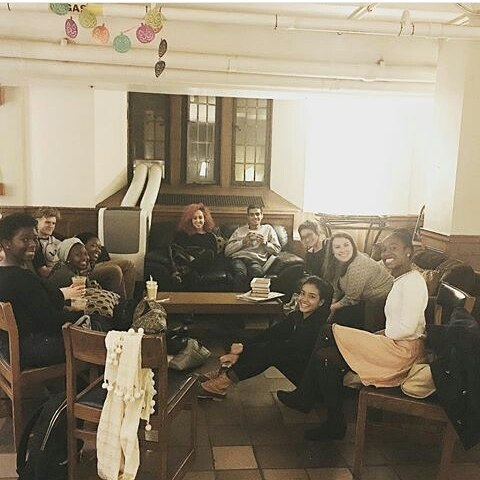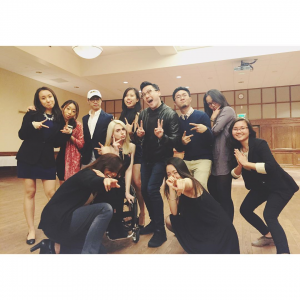By Will Verdeur ’19
Staff Writer
A worldly group convened this past Thursday, Nov. 17 in the Underground Coffeehouse to discuss the difficulties associated with attending college in New England. Students from Tanzania, Rwanda, Morocco, India, France, Trinidad and Tobago, Pennsylvania, Connecticut, southern California, and elsewhere all joined for the event titled “Surviving New England,” but often referred to “Surviving Trinity.” The congregation offered a space in which students from a variety of backgrounds could discuss their experiences adapting to a new culture and climate. Common themes included trouble dealing with cold weather and concern that the food was not sufficiently spicy. Even last year’s relatively mild winter was troublesome for students from climates where the average temperature stays about 32 degrees Celsius (about 100 degrees Fahrenheit) all year.
The meeting had a fluid, informal nature and, although it was run by Trinsition Fellows Consuelo Pedro ’15 and Meredith Friedman, it was easy to forget that Friedman and Pedro were not fellow students speaking as equals. To add to the welcoming atmosphere, Pedro and Friedman generously bought each person attending a drink of their choice. The women in attendance outnumbered the men, and most students who attended were members of minority ethnic groups.
Aside from the light-hearted stories of miscommunication and of adapting to New England’s cultural idiosyncrasies, a deeper topic emerged through some of the slightly more personal anecdotes. One international student confessed a feeling that other members of the Trinity community seemed to have less interest or concern about her unique experience and viewpoint than about the more common experiences and viewpoints of those who might be termed “typical” Trinity students. Many of the other students in the group echoed this sentiment, prompting Transition Fellow Pedro to announce to the entire group that Trinity professors, and in many cases Trinity students, as well as the Trinsition Fellows and many of the other administrators, did indeed have both interest and concern about the experiences of students for whom the culture of Trinity and New England is unfamiliar and challenging.
Yet another, all the more poignant topic was brought up as well: the fact that, for many international students, the typical citizens of their home country are financially supporting them-selves, often raising children, and living independently as an adult, while Trinity students of the same age or older are partying and relying on their parents for financial support. This perspective made some students wonder if their experience here was truly warranted in the name of education, or if it’s merely a self-indulgent prolonging of childhood.
Underground Holds “Surviving New England” Event




+ There are no comments
Add yours